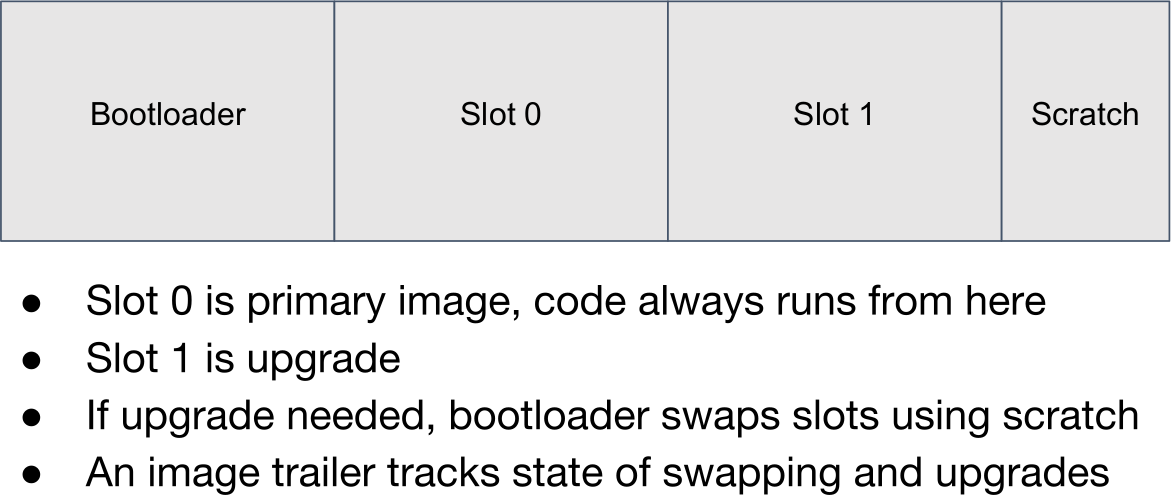Bootloaders takes care of the initial boot sequence on the hardware before the operating system takes over. For example, U-boot is often used in embedded systems as the bootloader before starting the main operating systems such as Linux or FreeBSD. MCUBoot is also a bootloader, but it targets the IoT, here referring to MCU based systems with limited memory and storage capacity, and is born out of work on Apache Mynewt OS, when developers decided to develop the bootloader separately from the operating system.
MCUBoot is designed to run on small & low cost systems running on MCU with ~512 KB flash, ~256 KB RAM, and currently supports Zephyr OS and Mynewt, with support for other RTOS also considered. Due to constraint the bootloader uses minimal features with a flash driver, a single thread, and crypto services. The project also aims at solving security and field firmware updates. To address the latter, the flash is partitioned in four sections, one for the bootloader, one “slot” with the primary image, a second slot for the firmware upgrade, and a Scratch partition to swap slots when an upgrade is needed. An image trailer at the end of each slot indicates the state of the slot.
You’ll find the source code in MCUBoot repository in Github, and you may want to watch the presentation at Linaro Connect Budapest 2017 for more details.

Jean-Luc started CNX Software in 2010 as a part-time endeavor, before quitting his job as a software engineering manager, and starting to write daily news, and reviews full time later in 2011.
Support CNX Software! Donate via cryptocurrencies, become a Patron on Patreon, or purchase goods on Amazon or Aliexpress





